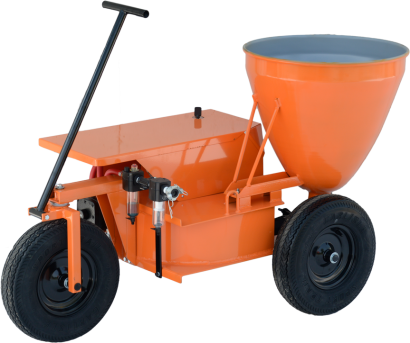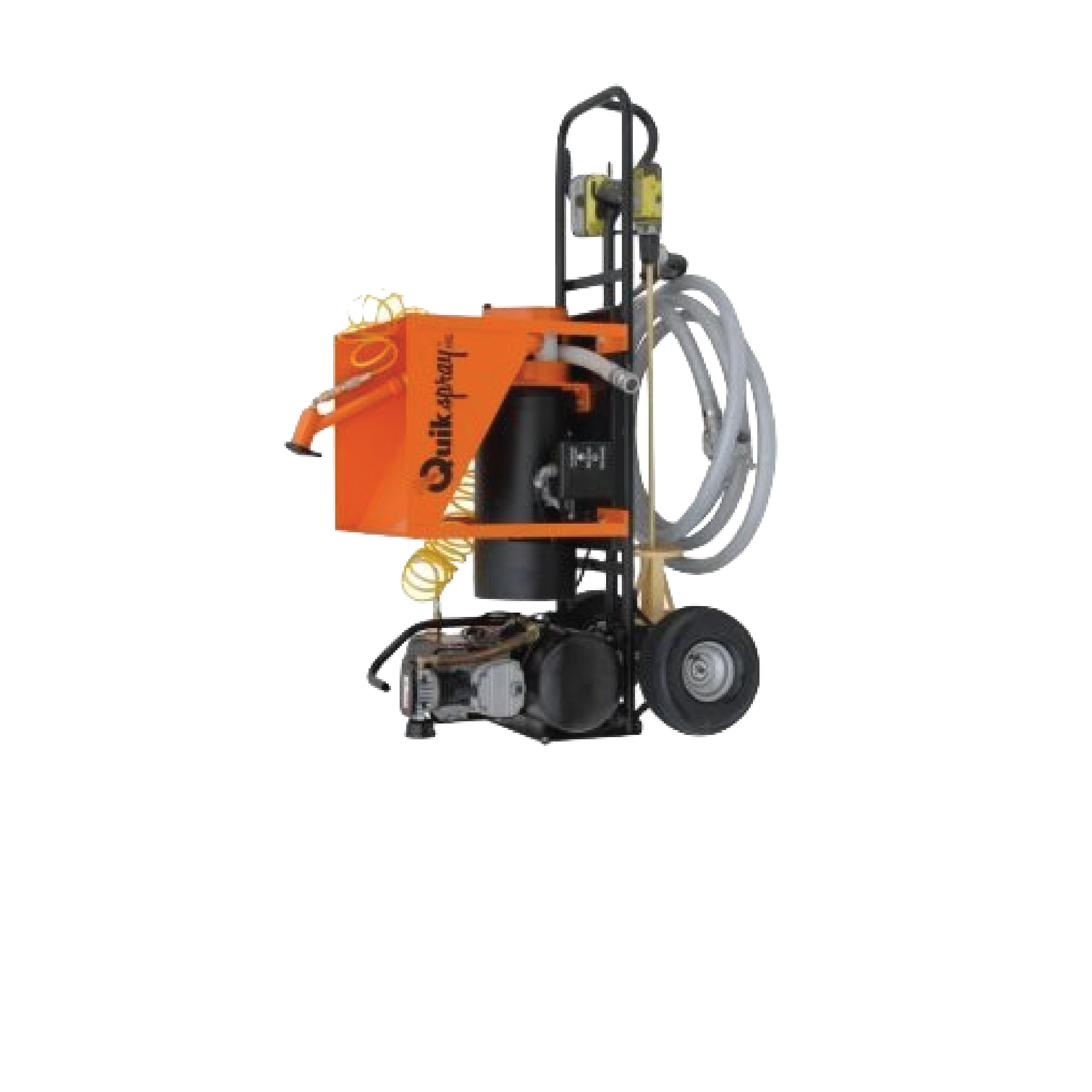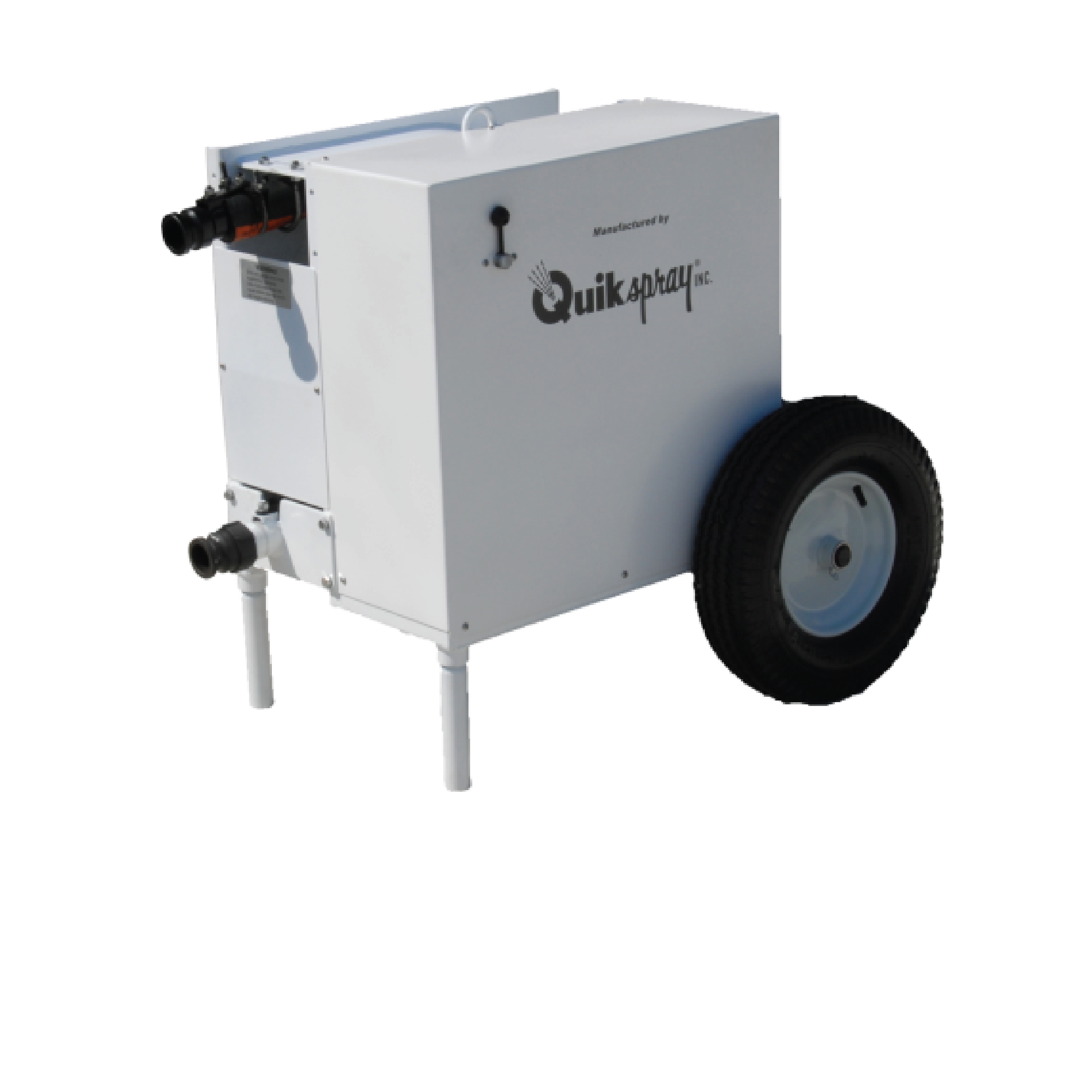When deadlines are tight and crews are stretched, equipment can make or break the schedule. At Quikspray® we’ve been building cement pumps since 1968, and contractors keep coming back because our machines don’t quit. Whether you’re spraying stucco, plastering walls, grouting cracks, fireproofing steel, or finishing a pool, our cement pumps are built to take the abuse of daily use and keep material moving.
What is a Cement Pump?
A cement pump is the bridge between your mix and the wall, ceiling, or formwork. Instead of hauling buckets or relying on gravity, you load material into the hopper and the pump pushes it through hoses right to the application area.
The payoff is straightforward: less manual lifting, faster coverage, and a more consistent finish. Whether you call it a stucco pump, plaster pump, or cement grout pump, the result is the same — a tool that saves labor and helps your crew deliver quality work on time.
Cement Pumps vs. Concrete Pumps
Contractors often ask us what the difference is. Here’s a simple breakdown:
Cement Pump | Concrete Pump | |
Material | Cement-based mixes (stucco, plaster, grout, coatings, fireproofing) | Structural concrete with larger aggregate |
Use Case | Specialty trades, coatings, restoration, decorative work | Large-scale pours, slabs, bridge decks, foundations |
Size | Compact, portable, versatile | Large, heavy, often with boom arms |
Best For | Stucco pump, plaster pump, cement grout pump applications | High-volume structural concrete pours |
At Quikspray® we focus on cement pumps because they deliver the most value for specialty contractors who need precision and durability.
Quikspray® Cement Pump Models
Get unique features and options perfect for your jobs. We offer a range of options that are perfect for different job sites and grout material.

Carrousel® Pump

Mini-Pump

Quikpump™
Applications in Detail
Stucco Pumps
Cement Grout Pumps
Fireproofing Pumps
Pool Plaster Pumps
Decorative Concrete and Rockwork
Waterproofing and Restoration
FAQs About Cement Pumps
What is a cement pump used for?
It moves cement-based materials like stucco, plaster, grout, and fireproofing where you need them – saving time and labor.
What’s the difference between a cement pump and a concrete pump?
Cement pumps handle finer mixes. Concrete pumps handle large aggregate for structural pours.
Which pump is best for stucco or plaster?
Most contractors choose the Carrousel® Pump because of its reliability and consistent output.
Can I use a cement pump for grout injection?
Yes. The QUIKPUMP™ and Mini-Pump are especially good for grout injection and repair jobs.
Are Quikspray® pumps portable?
Yes. Both the Mini-Pump and QUIKPUMP™ are designed for easy transport and setup.
Do you ship internationally?
Yes. Our pumps are used in more than 60 countries.
Do you offer training?
Yes. Our pumps are simple to operate, and we provide guidance and support for crews who need it.
How do I maintain a Quikspray® pump?
Clean after each job, keep it lubricated, and replace wear parts like hoses and blades as needed. Many pumps last 15–20 years with regular care.
How much does a cement pump cost?
Pricing depends on the model and setup. Contact us for a custom quote.
Ready to Put a Dependable Cement Pump on Your Jobsite?
Ready to put a dependable cement pump on your jobsite? Get in touch with Quikspray® today and let’s match you with the right model for your trade.
Take the Next step
Ready to buy? Explore our full lineup of concrete pumps for sale and request a quote today.
If you’re tackling bigger industrial jobs, see our commercial concrete pumps designed for high-volume contractors.
